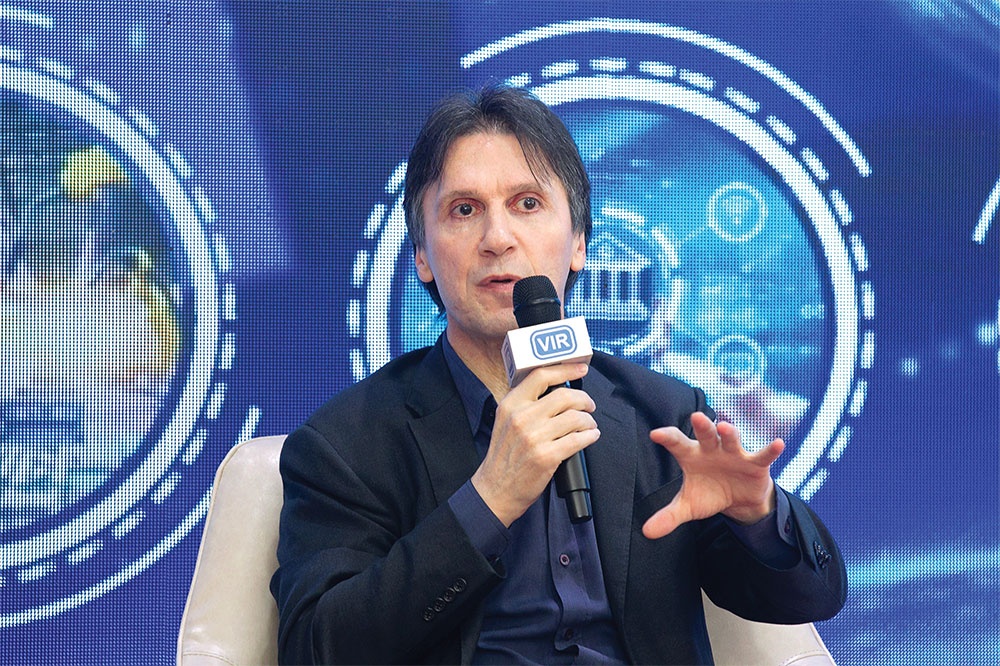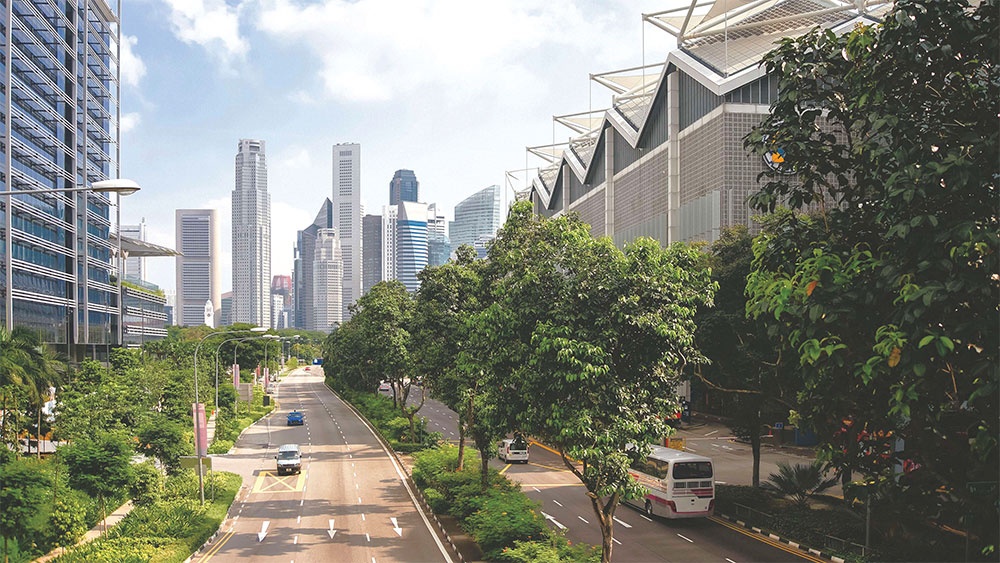5G commercialisation – a must to drive the digital vision of Vietnam
 |
| Denis Brunetti, president of Ericsson in Vietnam, Myanmar, Cambodia and Laos |
Vietnam is piloting 5G with the support of Ericsson. Is the country still slow in 5G rollout, or keeping up with regional countries?
Today, various countries are in different stages of 5G rollout. Every country and market has its own path, and Vietnam is very well-placed as one of the most dynamic and attractive investment destinations in the world, with a fast-growing digital economy and strategic focus on nationwide digital transformation and Industry 4.0, enabled by 5G as a critical national infrastructure. Ericsson fully supports and endorses this vision, and we are committed to helping Vietnam achieve this important and strategic ambition.
Today there are 235 5G networks in the world in commercial service, with 5G having over 30 per cent population coverage globally. Vietnam is well poised to commercially expand 5G later this year and derive the benefits of the latest, most advanced 5G products and solutions, as well as leveraging the valuable knowledge and experiences from the 5G deployment across other markets in the world.
Which factors should Vietnam focus on now to enable commercialisation of 5G this year?
Vietnam has a strong strategic focus on digital transformation across society, the economy, and government. This triple pillar approach is visionary and has Ericsson’s full support.
To enable commercialisation, the government will ensure adequate 5G spectrum availability for service providers, and the mobile operators will need to deploy 5G across the country, establishing a critical national digital infrastructure. Our global experience shows that first movers historically capture most of the value, attracting investment and generating innovation through start up entrepreneurship that will help create new industries and new jobs from the vast opportunities emanating from limitless connectivity.
The growth of the 5G ecosystem will go a long way towards accelerating the 5G and Industry 4.0 adoption by enterprises in Vietnam. The industry, academia, and government collaboration will serve to build up innovative 5G use cases that are relevant for Vietnam.
For example, together with RMIT University in Vietnam, Ericsson is already today delivering 5G, the Internet of Things, AI, automation, AR/VR, edge computing, and blockchain training to RMIT’s engineering, science, and technology students in Vietnam.
As part of our 30 year anniversary in Vietnam this year, Ericsson and RMIT University will launch an AI Lab at RMIT campus in the second quarter of 2023, supporting and aligning with the government’s vision of making Vietnam a regional hub for AI by 2030. This is a particularly important initiative since AI is a spearhead technology for Industry 4.0.
How can industries like manufacturing, banking and finance, and e-commerce benefit when 5G is commercialised?
Enterprises are looking to invest in modernising their legacy systems by utilising new technologies and applications which will drive new innovations, operational efficiencies, and growth.
The initial use-case of private 5G networks will be around gaining operational flexibility, efficiencies, and reliability, helping further improve Vietnam’s labour productivity growth rates towards the government’s target of 7.5 per cent per annum by 2030.
For instance, the manufacturing sector will use 5G capabilities to include features such as smart manufacturing, digital twin technology, VR/AR, robotics, and automation for efficiency, flexibility, safety, and quality improvements.
To increase operational efficiencies, the transportation and logistics industry is considering adopting autonomous mobile robots that can manoeuvre around a manufacturing floor while transporting, tracking, and inspecting goods and parts.
The mining industry is also looking into collaborative robots that will assist operators with activities like drilling, assembling, and remote inspection, as well as asset condition monitoring.
The top 5G use cases that enterprises identify as priorities are enhanced content streaming, real-time video analytics, and control of autonomous vehicles and drones. Ericsson believes that the commercialisation of 5G will deliver a triple bottom-line benefit to Vietnam – social, economic, and environmental.
Ericsson is proud and dedicated to serve the needs of Vietnam, working in partnership with all mobile operators and service providers in Vietnam, as well as academic institutions, to seamlessly expand 5G in the country.
 |
| To enable commercialisation, the government will ensure adequate 5G spectrum availability for service providers |
Mobile operators are dealing with infrastructure development to enable 5G rollout. How can Ericsson support them with this, as well as in technical support?
Ericsson has already helped launch more than 140 commercial 5G networks globally with our customers, and we are the leading global 5G infrastructure vendor, according to recent independent reports by Frost & Sullivan and Gartner Magic Quadrant.
We have established a top position in 5G – around half of 5G traffic globally, outside of mainland China, is carried over Ericsson’s radio networks.
As a long term and trusted strategic partner to Vietnam, Ericsson will continue to share its global 5G experience with our customers in Vietnam, helping ensure successful coverage and capacity deployments with resilient network performance, scalability, simplicity, and security as a primary focus.
Since 2017, Ericsson has increased its focus on supporting our mobile operator and service provider customers with mass 4G deployments and 5G commercial trials across the country, and particularly in high-growth and industrial areas that will eventually benefit from smart manufacturing efficiencies and sustained productivity gains, enabled by Industry 4.0 and powered by 4G and 5G capabilities.
What the stars mean:
★ Poor ★ ★ Promising ★★★ Good ★★★★ Very good ★★★★★ Exceptional
Themes: Digital Transformation
- Dassault Systèmes and Nvidia to build platform powering virtual twins
- Sci-tech sector sees January revenue growth of 23 per cent
- Advanced semiconductor testing and packaging plant to become operational in 2027
- BIM and ISO 19650 seen as key to improving project efficiency
- Viettel starts construction of semiconductor chip production plant
Related Contents
Latest News
More News
- Wages and Lunar New Year bonuses on the rise (February 09, 2026 | 17:47)
- Temporary relief for food imports as businesses urge overhaul of regulations (February 07, 2026 | 09:00)
- Opella and Long Chau join forces to enhance digestive and bone health (February 06, 2026 | 18:00)
- Vietnam-South Africa strategic partnership boosts business links (February 06, 2026 | 13:28)
- Sun PhuQuoc Airways secures AJW Group support for fleet operations (February 06, 2026 | 13:23)
- Pegasus Tech Ventures steps up Vietnam focus (February 05, 2026 | 17:25)
- The generics industry: unlocking new growth drivers (February 04, 2026 | 17:39)
- Vietnam ready to increase purchases of US goods (February 04, 2026 | 15:55)
- Steel industry faces challenges in 2026 (February 03, 2026 | 17:20)
- State corporations poised to drive 2026 growth (February 03, 2026 | 13:58)

 Tag:
Tag:




















 Mobile Version
Mobile Version